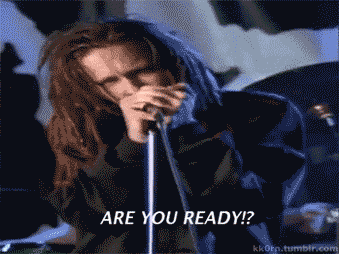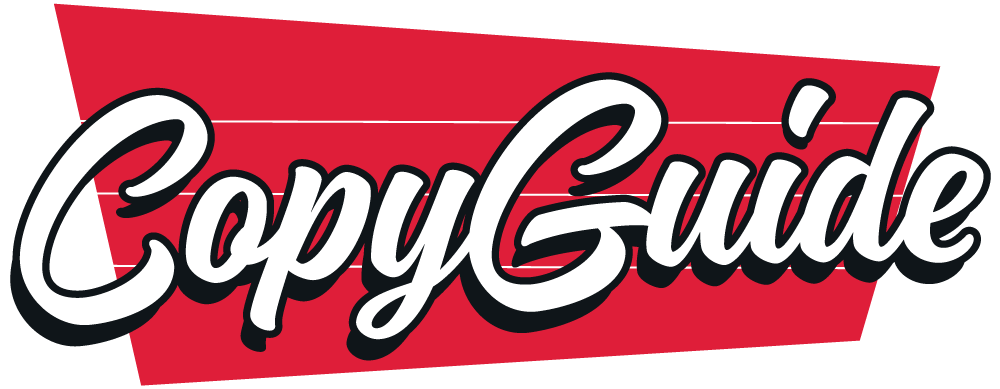Do question headlines work?
Should you use 'em in your website copy?
That depends.
Questions do have the power to suck in an audience — there’s even quant data to back it up:
>> Researchers at BI Norwegian Business School in Oslo, Norway, ran a study directly comparing declarative headlines against those asking questions. The study found that question headlines gained an average of 150% more clicks.
>> According to a Backlinko study, question headlines (titles that end with a “?”) get 23.3% more social shares than headlines that don’t end with a question mark.
But you’ll only connect with your ideal audience if you ask a question the right way.
After auditing web copy for 100+ brands over the past 7 years, I've noticed that question headlines are one of the most misunderstood copywriting tactics.
Many brands use 'em all willy-nilly without thinking about how the reader will actually answer. So they end up with headlines that prompt a 'no' response, which sends their prospects bouncing. This fat-free article will cover when to use question headlines, how to use ‘em and mistakes to avoid.
When question headlines fail hard
Like I said, the biggest mistake you wanna avoid is slapping a headline on your website that makes your readers go ‘nah’. ‘Cos then they’ll go away. And take all their juicy, juicy money with ‘em.
The biggest ‘no’ culprit? Subheads or headlines that begin with "Are You Ready..."
( 🎶 cue the intro to 'Blind' by Korn)

As in: "Are you ready to 10X your leads?"
Um, no.
Your best-fit customer may want that eventually, but they're likely not 'ready' for it this bloody second (think of their poor sales team!).
Or how about vacations. Everyone loves vacations right? Sure.
But they may not be ‘ready’ to book one this very freakin’ second.
And yet travel companies love to spew out: “Are you ready to book a vacation of a lifetime?’
Probably not. You need to take time off work. And find someone to look after grandma and Sprinkles the goldfish.
A totally different yet equally poor example:
"Would you like to talk to sales? Click here to schedule a call."
Nobody 'would like' to talk to sales. They simply want the result that talking to a sales rep gives them: understanding the product better, seeing if a service is a good fit etc.
So how should you write a question headline then?
The ONLY 2 times to use a question headline
Bust out the headline questions only if you're confident that your audience will answer in one of two ways:
✅ IDEAL ANSWER #1: "Yes!"
Rather than ask if they wanna chat with sales (boo!), try linking your question to an outcome your prospects want. Like ice cream (yay!).
Or if you’re writing for a B2B crowd, replace ‘wanna talk to sales?’ with something that actually gives them a reason to hop on the phone like:
"Would you like to cut your acquisition costs by 30%? Let's talk."
Of course, you need to be SURE that your ideal customer actually wants that result.
Also, try to use a clear and specific question that tackles a problem or need. Include data or timelines, if possible. For example, "Do you want to lose 10 pounds in 30 days?".
Here are some yes-inspiring questions from classic ads:
"Are you fed up with your job?" - a job recruitment ad for Kelly Services, created by advertising copywriter William Bernbach in the 1960s.
"Would you like to be your own boss?" - a question often used in ads for franchise opportunities, including those from Subway, Snap-on Tools, and Jani-King.
"Are you ready to transform your life?" - a question often used in ads for self-help books and courses, including those from Tony Robbins, Deepak Chopra, and Jack Canfield.
And remember: don’t just copy classic ads — think about what makes them work and write your own original headline (that last one is about as cheesy as they come these days ).
Now, here’s an even better approach...
✅ IDEAL ANSWER #2: "I don't know."
Ah, the classic curiosity-generator.
Question headlines that produce an ‘I don’t know’ response make us humans want to seek out the answer. It nags at us. Pulls us in.
There are three basic types of question headlines that generate an ‘I don’t know’ response.
1) Pure Curiosity
Nothing all that sophisticated going on here — the question just teases out information you want to know. For example:
“What are the best foods to boost your immune system?”
“Do headline questions work?”
Sound familiar? 😉
This is more common in articles than website copy, I’d say. Just don’t get all click-baity with it, okay?
2) Self-Doubt
You've probably seen this famous headline: "Are you making these mistakes in English?"
And you’ve probably seen a bunch of cliched copycats of it too…
“Are you making these landing page mistakes?”
“Are you making these email mistakes”
“Are you making these lazy, cliched copywriting mistakes?”
(see what I did there?)
Overused or not, the general principle of this headline holds true: poke at something people are already feeling self-conscious about and you’ll get their attention.
Folks keep reading because they want to find out what ‘mistake’ they might be making. Plus, the headline implies that there might be a solution as well.
But I like this question headline the best…
3) Benefit booster
The best copywriting doesn’t make claims, it fosters conclusions. What’s that mean?
Basically: helping your reader understand the benefits of your product or service on their own is far more persuasive than trying to ‘sell them’ directly.
Take this question headline, for example:
"What if instead of selling 20 books per day, you sold 30?"
It gets the reader dreaming of all the juicy benefits your product or service provides. It prompts them to imagine a life where their sales are up by one-third. More money for a vacation. For their business. For whatever their little heart desires.
Compare that headline to a claim: “Boost your book sales by 30%.” I mean, it’s okay. It may work in the right context. But it doesn’t get ‘em daydreaming like the question headline does.
Forget Betteridge's Law of Headlines
As a former journalist, I’d be remiss for not mentioning this:
Betteridge's Law of Headlines states that any headline that ends in a question mark can be answered with a "no." This is often true in journalism because headlines that end in a question mark are usually designed to be provocative and attention-grabbing, rather than informative.But this ‘law’ isn’t relevant to copywriting at all.
Good copy sparks curiosity or implies benefits using questions — it’s not just a click-bait tactic. Okay, glad we got that out of the way.
But do you REALLY need a question?
Yes, there’s data to suggest headline questions are compelling.
But there’s also data to suggest they’re not so great.
Here’s what a senior manager at MECLABS had to say about this question-based A/B copy test.
“I’d say question headlines are dangerous. When you set out to write a question headline, you risk delaying a promise of value that would engage the customer and give the customer a reason to read on.”
So don’t just whip out those big ol’ questions for no reason. Actually think about whether a question headline is the best way to deliver your message to the right audience at the right time. Just refer to your copy strategy for help as needed.

